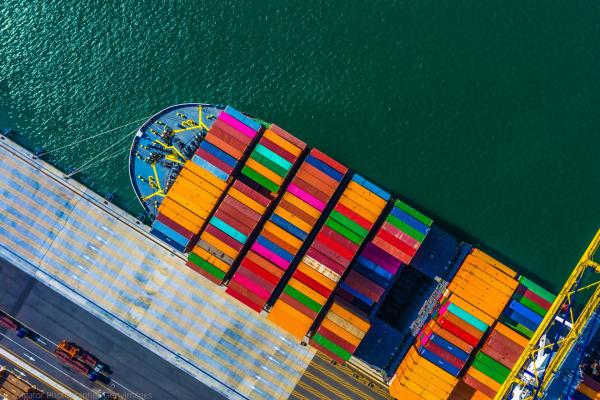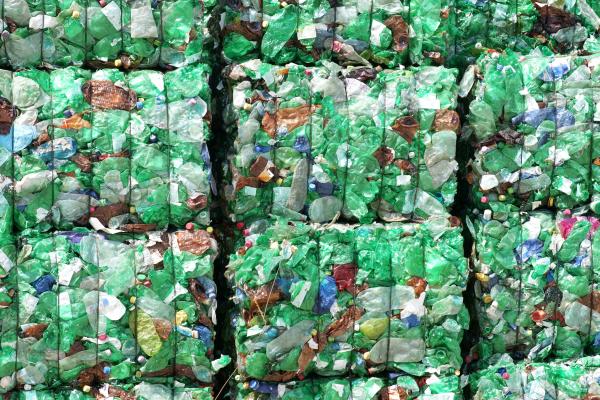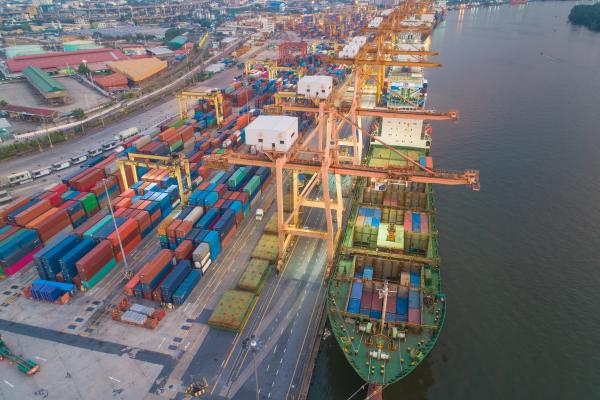Overview
Economic growth and globalisation have led to a worldwide increase of waste transport across borders, by road, rail and boat.
The EU has a system to supervise and control shipments of waste within its borders. This system also covers the export and import of waste.
Waste contains valuable secondary raw materials. Trading it can have a positive impact on the economy, but the uncontrolled movement of waste can have disastrous environmental consequences.
Most waste that is generated in the EU is shipped between Member States, but a large share of that waste is still exported.
Non-OECD countries willing to continue receiving non-hazardous waste from the EU need to submit their request to the Commission by 21 February 2025.
Objectives and aims
Since 1993, EU law on the shipment of waste includes rules for transporting waste across borders. Recently, the EU rules on waste shipments within the EU and to and from it were updated.
The new Regulation on waste shipments entered into force on 20 May 2024. It aims to:
- Ensure that the EU does not export its waste challenges to third countries and contributes to environmentally sound management of waste.
- Strengthen enforcement to prevent illegal shipments of waste occurring within the EU, as well as from the EU to third countries.
- Increase traceability of waste shipments within the EU and facilitate recycling and reuse.
Learn more about the Regulation's objectives in this video by Euronews.
Although the new Waste Shipments Regulation entered into force on 20 May 2024, most provisions will apply from 21 May 2026 and most export rules will apply from 21 May 2027. Until then, the provisions of Waste Shipment Regulation 1013/2006 continue to apply.
Find more information about the regulation's implementation here.
Waste shipment rules
Waste shipments between EU Member States
For intra-EU shipments, different procedures apply depending on the type of waste, its envisaged treatment and the destination country.
For all waste destined for disposal or in the case of hazardous and most mixed waste destined to recovery the prior notification and consent procedure applies. This means that an operator planning such shipments needs the prior consent of all authorities from the countries concerned (from origin to destination, including transit) before the shipment can take place.
For shipments of “green-listed” non-hazardous wastes within the EU and OECD for recovery, general information requirements apply. Any basic information on the waste that is shipped, like the quantity, treatment, origin and destination, must be made available before the shipment starts.
With the new Regulation, procedures will move away from a paper-based approach to an electronic one. A central EU system will ensure the smooth operation of this exchange from May 2026.
Export of waste from EU countries
A general ban on waste exports for disposal and a ban on hazardous waste exports for recovery to non-OECD countries continue to apply.
For exports for recovery, new rules will apply from May 2027 onwards. Those rules differentiate between OECD countries and non-OECD countries.
Rules for OECD countries
Overall, the procedural framework for exports to OECD countries outside the EU is very similar to the regime for shipments between Member States.
Specifically, regarding exports to OECD countries, trends will be monitored by the Commission. If there are concerns that certain exports are increasing and likely to cause environmental damage in the country of destination, the Commission will engage in dialogue with this country. Ultimately, such exports will be suspended if the waste is not managed in an environmentally sound manner.
Particular scrutiny will apply to the export of plastic waste.
Rules for non-OECD countries
Exports for disposal and hazardous waste exports for recovery to non-OECD countries will continue to be banned, as is already the case under current rules.
Starting from 21 May 2027, the European Union will enforce stricter rules on non-hazardous waste exports.
The export of non-hazardous waste, also known as 'green-listed' waste, will generally be prohibited to non-OECD countries. Exceptions may be granted to non-OECD countries meeting specific environmental conditions in the new Regulation.
Non-OECD country authorities wishing to import waste from the EU are invited to notify the European Commission of their willingness and demonstrate their ability to treat this waste environmentally soundly, as per Annexes VIII and IX of the Regulation.
Obligations of waste exporters
- Companies exporting waste from the EU will have to demonstrate that the waste exported is properly managed in the facility that manages the waste in the recipient country.
- Companies must ensure that independent audits are carried out in the facilities to which they ship waste, demonstrating that those facilities manage waste in an environmentally sound manner. In the absence of a positive audit, the companies must stop exporting their waste to the facility concerned.
Monitoring of illegal waste shipments
- An EU ‘waste shipment enforcement group’ will be established to increase cooperation and coordination against illegal shipments of waste, comprising environmental, customs, police and other relevant national inspection authorities, as well as European and international law enforcement networks.
- The Commission will be empowered through its anti-fraud office - OLAF - to support transnational investigations by EU Member States on waste trafficking.
- Third countries will be supported in fighting waste trafficking through various channels of international cooperation.
Plastic waste export rules
Shipments of plastic waste are subject to a specific regime.
Any authorised export of plastic waste outside the EU will be subject to the Prior Informed Consent (PIC) Procedure, a key provision of the Basel Convention.
Timeline
Key dates related to the Waste Shipments Regulation
- May 2027New rules on exports start to apply
- November 2026Plastic waste exports to non-OECD countries banned
- May 2026New provisions (except on exports) start to apply
- 21 February 2025Deadline for non-OECD countries to request to continue to receive waste
- 20 May 2024New Waste Shipments Regulation enters into force
- 11 April 2024New Waste Shipments Regulation is adopted
- 17 November 2021Commission proposes a new Regulation on waste shipments
- 20 October 2021Regulation (EU) 2021/1840 is adopted, updating Regulation (EC) No 1418/2007 on the export of green-listed waste to non-OECD countries
- 01 January 2021EU rules on plastic waste shipments enter into force
- 14 June 2006Waste Shipments Regulation enters into force
Law
Two Regulations, one in 1993 and another in 2006, have implemented the obligations of the Basel Convention (1989) on the control of transboundary movements of hazardous wastes and their disposal. The EU rules also transpose the provisions of the OECD decision (2001) establishing a control system for waste shipments for recovery within the OECD area.
- New Waste Shipments Regulation (2024)
- Regulation establishing the information to be provided in the certificate confirming the completion of a subsequent interim or non-interim recovery operation or a subsequent interim or non-interim disposal operation (2024) adopted under Article 15(6) of the new Waste Shipment Regulation
- Waste Shipments Regulation 1013/2006 (consolidated version)
- Regulation (EU) 2021/1840, updating Regulation (EC) No 1418/2007 on the export of green-listed waste to non-OECD countries
- Implementing act setting out a preliminary correlation table between customs and waste codes – to help customs officials identify potential waste streams. (2016 - applicable also under the new Waste Shipments Regulation)
- Delegated regulation on plastic waste shipments (2020)
The Commission is preparing other delegated and implementing acts, notably:
- Delegated acts amending the new Waste Shipment Regulation and the Waste Shipment Regulation of 14 June 2006 to implement changes concerning shipments of electrical and electronic waste agreed under the Basel Convention;
- Implementing act on requirements for interoperability between the central system for electronic submission and exchange of information and documents concerning shipments of waste and other systems or software;
Brexit
Following the UK’s withdrawal from the EU, the Commission has published a Brexit Readiness Notice for Waste Shipments.



